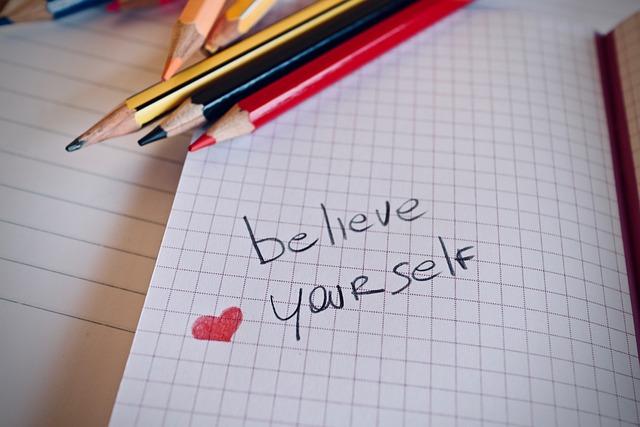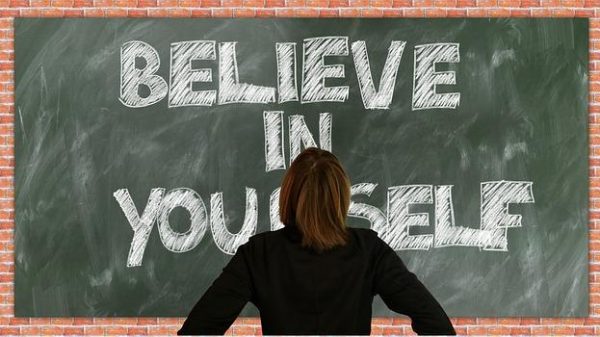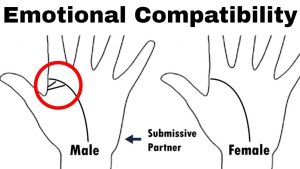In a world that thrives on connections, the quest for meaningful relationships often feels like a journey without a map. We find ourselves navigating a labyrinth of social cues, digital interactions, and the age-old dance of human connection. Yet, at the heart of this intricate web lies a question that has intrigued philosophers, psychologists, and everyday seekers alike: Does building confidence act as a compass, guiding us toward relationships that truly resonate with our inner selves? This article delves into the enigmatic interplay between self-assurance and the depth of our connections, exploring whether the key to more profound relationships lies in the quiet strength of confidence. Join us as we unravel the threads of this complex tapestry, seeking to understand if the foundation of meaningful bonds is laid not in the external world, but within the chambers of our own self-belief.
Understanding the Link Between Self-Assurance and Relationship Depth
In the intricate dance of human connections, self-assurance acts as a steady rhythm, providing a foundation upon which deeper relationships can flourish. When individuals possess a robust sense of confidence, they are more likely to engage in authentic interactions, paving the way for genuine connections. Confidence empowers individuals to express their true selves without fear of judgment, allowing them to listen actively and respond with empathy. This openness fosters trust and understanding, crucial elements for any relationship to thrive.
- Honest Communication: Confidence enables individuals to communicate openly, sharing thoughts and feelings without hesitation.
- Emotional Resilience: A confident person can handle conflicts and disagreements more gracefully, viewing them as opportunities for growth.
- Mutual Respect: Self-assured individuals are more likely to respect others’ boundaries, nurturing a sense of equality in relationships.
- Active Listening: With self-confidence, there’s less focus on self-defense, allowing for better understanding and attentiveness.
In essence, confidence not only shapes how we perceive ourselves but also how we interact with others, serving as a catalyst for more profound and meaningful relationships.

Exploring the Role of Confidence in Emotional Connections
In the tapestry of human connections, confidence often serves as a vibrant thread, weaving together the complexities of emotional bonds. When individuals exude self-assurance, they tend to approach relationships with an open heart and a genuine interest in understanding others. This openness can foster deeper connections, as it encourages authenticity and vulnerability—key components of meaningful relationships. Confidence allows individuals to express their true selves without fear of judgment, paving the way for honest communication and mutual respect.
- Authenticity: Confidence empowers people to be genuine, reducing the need for pretense and enhancing trust.
- Vulnerability: Those who are confident are often more willing to be vulnerable, sharing their thoughts and emotions freely.
- Communication: Clear and assertive communication, bolstered by confidence, can resolve misunderstandings and deepen connections.
Moreover, confidence can act as a magnet, attracting others who are drawn to the positive energy it emits. This attraction can lead to the formation of relationships that are not only more meaningful but also more resilient. When individuals are confident, they are better equipped to set healthy boundaries, ensuring that their relationships are balanced and fulfilling. Ultimately, the role of confidence in emotional connections is not just about building relationships but nurturing ones that are rich, profound, and enduring.

Practical Steps to Enhance Confidence for Better Relationships
Building confidence can significantly impact your relationships by fostering a more authentic and engaging connection with others. Here are some practical steps to enhance your confidence:
- Self-Awareness: Start by understanding your strengths and areas for improvement. Reflect on past experiences to identify patterns and behaviors that have contributed to your confidence or lack thereof.
- Body Language: Cultivate an open and positive posture. Simple adjustments, such as maintaining eye contact, standing tall, and offering a genuine smile, can make you appear more confident and approachable.
- Set Achievable Goals: Break down larger goals into smaller, manageable tasks. Celebrate small victories to build momentum and confidence over time.
- Positive Affirmations: Use daily affirmations to reinforce your belief in your abilities. Statements like “I am worthy of love and respect” can shift your mindset and boost self-esteem.
- Seek Feedback: Engage in open conversations with trusted friends or mentors to gain insights into your behavior and how you can improve your interactions.
These strategies not only enhance personal confidence but also pave the way for deeper, more meaningful connections with others. By cultivating self-assurance, you create a space where relationships can thrive on mutual respect and understanding.

Balancing Confidence and Vulnerability in Personal Interactions
- Understanding that confidence and vulnerability are not mutually exclusive can transform how we connect with others. While confidence projects self-assurance and stability, vulnerability opens the door to authenticity and empathy. In personal interactions, balancing these two elements can be the key to developing deeper, more meaningful relationships.
- Confidence allows us to present our true selves without fear of judgment, yet it is vulnerability that encourages us to share our fears and uncertainties. This combination creates a safe space where genuine connections can flourish. When we are confident enough to be vulnerable, we invite others to do the same, fostering an environment of mutual trust and respect.








